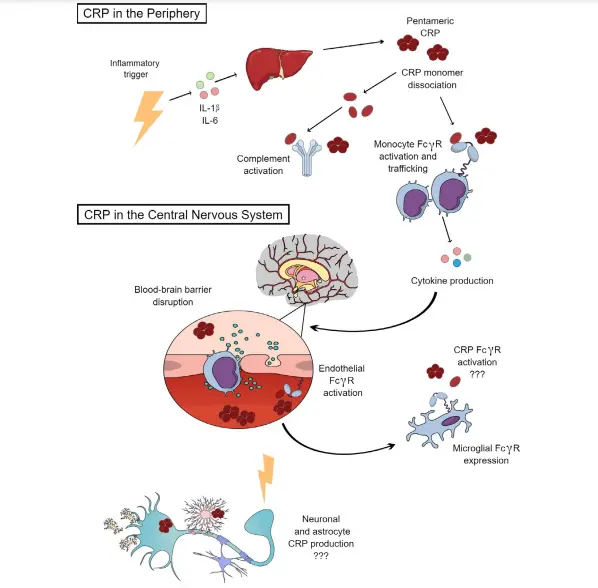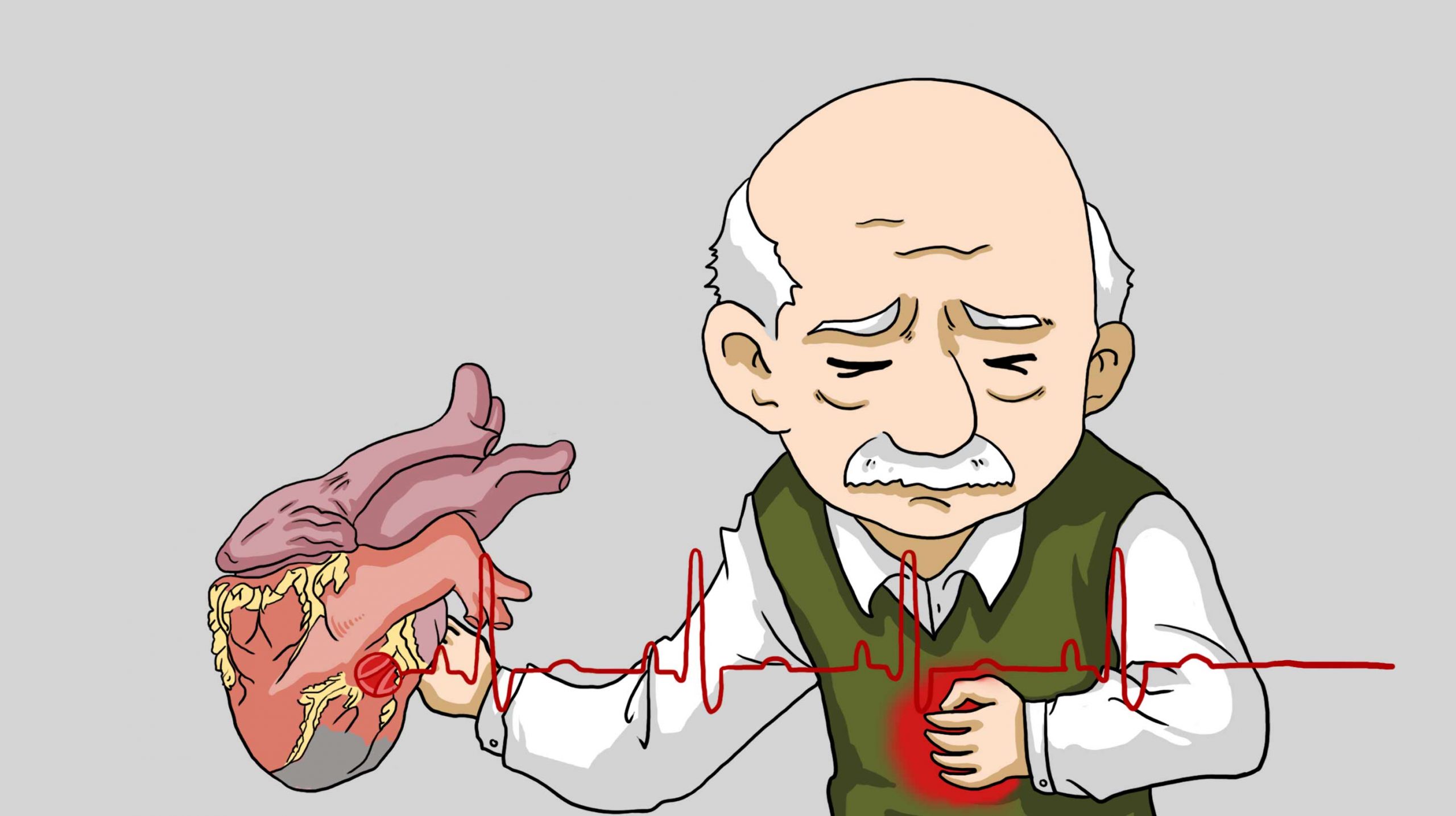Sudden weight loss after age 50 is not always a good thing! Watch out for abnormal symptoms and seek medical attention promptly

We know that being overweight and obese increases the risk of cardiovascular disease, cancer and diabetes.In middle age, people are generally more likely to “put on weight”, which is also known as the “middle-aged fattening” phenomenon. The reason for this is that as we age, the body’s metabolic rate decreases and energy consumption decreases, leading to weight gain. In addition, poor lifestyle practices such as prolonged sedentary lifestyle, lack of exercise and unbalanced diet also have an impact.
That’s why there is a common saying – “A thousand dollars won’t buy you old and thin”. However, losing weight suddenly is not always a good thing.
Sudden weight loss, especially if it is unplanned (not intentional), may indicate a serious health problem. There is a medical term for this, called “involuntary weight loss”.
Here’s what the Health Squeezer has to say about this.
What does involuntary weight loss mean in itself?
In the current overall data, involuntary weight loss means an increased risk of death and fracture.
Epidemiological studies have shown that involuntary weight loss in older people living in long-term care facilities for the elderly suggests an increased risk of death.
Weight loss is also associated with malnutrition absorption, and human bones are prone to osteoporosis and even fracture when they are malnourished, and muscle strength can be compromised. Once bed-ridden for long periods of time, the patient’s physical condition and life experience may take a sharp turn for the worse.
What are the possible causes of involuntary weight loss?
Simply put, there are two types of conditions: less absorption or more consumption. The following diseases are common causes.
1. Cancer.
When we talk about consumption, we have to mention cancer (malignant tumours). Cancer is one of the main causes of short term weight loss, accounting for 15-30% of involuntary weight loss.
When tumour cells in a patient’s body start to divide wildly and uncontrollably, they rob more energy and nutrients to support this cell growth. The tumour also affects the metabolism of fats and proteins in the body, causing metabolic abnormalities and leading to increased consumption.
At the same time, many cancer patients develop an altered sense of taste, and some lose their appetite, resulting in less food. In terms of age, 50 years old onwards is the age of high incidence of cancer.
2. Diabetes.
Diabetes mellitus is typically characterised by the so-called “three excesses and one deficiency”: drinking more, eating more, urinating more and losing weight. Of course, in reality, some patients often have symptoms that are not so typical.
As a result of the lack of insulin in the body, or the inability of insulin to function properly, the body is unable to use the nutrients in food properly, so the patient may lose weight – even if he or she eats more.
3. Hyperthyroidism.
Hyperthyroidism, also known as “hyperthyroidism”, is a condition in which the thyroid gland becomes overly “hyperactive” and produces too much thyroxine. One of the most important functions of thyroxine is to stimulate the body to speed up its metabolism, at the expense of requiring the body to use more energy. With more energy consumed, the body’s energy reserves are reduced and weight is lost.
Don’t be envious, hyperthyroidism is not good at all. In adults, excess thyroxine can also lead to a rapid heart rate, fatigue, anxiety, insomnia and in severe cases, hyperthyroidism can even be life-threatening. This is not a “diet”.
The highest incidence of hyperthyroidism is between the ages of 30 and 60, and is higher in women than men, but can occur at any age.
4. Depression.
Mental problems can also lead to loss of appetite and weight loss, such as depression.
Depression can affect appetite, energy intake and metabolism, which can lead to weight loss. Most people who experience depression lose their appetite, lose their appetite and feel anorexic. Mental fatigue and stress can also lead to neglect of diet and a healthy lifestyle, with casual eating and ‘muddling through’, which can also lead to weight loss.
It is important to note that certain depression medications may also affect the functioning of the gastrointestinal tract and the perception of appetite, which may indirectly affect weight management. Therefore, it is important to seek medical advice if you are experiencing problems in this area.
Surveys have shown that the prevalence of depression in people over 65 years of age is 4.7%. It is worth noting that patients with hypertension, coronary heart disease and diabetes are also more likely to suffer from depression at the same time than the general population, and these are all chronic diseases that are highly prevalent in middle and old age.
5. Peptic ulcers.
There are two common types of peptic ulcers: gastric ulcers and duodenal ulcers.
Ulcers cause damage to the mucous membrane of the digestive tract, affecting digestive function and resulting in food not being adequately digested and absorbed. At the same time, patients often suffer from anorexia and pain, making it difficult to eat properly and resulting in a lack of adequate nutrient supply to the body.
Peptic ulcers can be seen at any age, predominantly between the ages of 20-50, and more often in men than women.
6. Inflammatory bowel disease.
Inflammatory bowel diseases are a group of diseases characterised by chronic inflammation of the intestinal tract and include two main types, ulcerative colitis and Crohn’s disease. It is a rare and complex group of diseases.
Note that “inflammation” in this context is not the result of infection. Inflammation is a physiological response, a non-specific immune response to damaged tissue, whereas ‘infection’ is exogenous.
Inflammatory bowel disease can cause a variety of discomforts, such as diarrhoea, abdominal pain, fatigue, anaemia and loss of appetite. In addition, it is common for people with inflammatory bowel disease to lose weight. The reasons for this are multifaceted.
Firstly, inflammation can damage the mucosa and affect the absorption and utilisation of nutrients in the intestine.
Secondly, chronic intestinal inflammation also causes metabolic disturbances, leading to increased energy expenditure ;
Frequent abdominal pain and diarrhoea can also affect a person’s appetite.
Previously, many people believed that inflammatory bowel disease did not easily affect the middle-aged and elderly, and it seemed that the patients they knew around them were very young. However, current statistics show that the incidence of inflammatory bowel disease is likely to be “bimodal”, with the second peak occurring between the ages of 50 and 80.
7. Tuberculosis “resurgence”.
Tuberculosis is an infection caused by Mycobacterium tuberculosis, which used to be called “consumption”, and which affects a large number of people worldwide.
A “relapse” of tuberculosis is the re-emergence of the disease in a patient who has been cured or largely cured by treatment. Patients may initially have mild symptoms, but then the symptoms may get progressively worse, such as coughing, coughing up sputum, chest pain and even bloody sputum.
It is important to note that lack of appetite and weight loss are common features of this type of tuberculosis, and some patients do not even feel otherwise unwell, but simply feel that they have “lost weight recently”. Therefore, it is important to seek medical attention if you have a history of tuberculosis and experience significant weight loss in a short period of time.
8. Chronic alcohol abuse.
Alcohol contains calories and alcohol abuse can lead to gastritis, which reduces the body’s interest in food; digestion and absorption are closely linked to the villi epithelium of the small intestine, and alcohol abuse can lead to erosion of the intestinal mucosa and loss of the villi epithelium ……
Alcohol abuse and health can be said to be a “confrontation” at every turn. As you reach middle age, don’t get too caught up in the drinking culture.
There are other problems such as malabsorption and other pathogenic infections, which I won’t go into here.
How to be healthy and avoid unhealthy weight loss after 50?
1. A sensible diet plan.
Middle-aged people should arrange their nutritious diet reasonably according to their physical condition and intensity of daily activities, especially to reduce the intake of high-calorie, high-fat and high-sugar diets. In addition, attention should be paid to a balanced intake of various nutrients. If you have an underlying medical condition, you may want to consult a nutritionist to ask “what to eat”.
2. Exercise in moderation.
Moderate exercise helps to boost metabolism, burn fat and maintain good health. Middle-aged people should limit the intensity and duration of exercise according to their physical condition to avoid excessive damage to joints and muscles, and, where possible, we recommend that people over 50 years of age should maintain more than 150 minutes of moderate-to-vigorous physical activity per week.
3. Good sleep habits.
Insomnia can affect appetite. You should get enough hours of quality sleep each night.
4. Stop smoking and drink less.
Heavy smoking of tobacco and alcohol can lead to abnormal weight loss.
5. Always have a digital scale and blood pressure monitor in your home.
Getting a digital scale is a good way to keep track of your weight so that you don’t jerk back and find that you have unknowingly gained 10 pounds, so that you can spot abnormalities in time and buy yourself time if medical intervention is needed.
As for the blood pressure monitor, at this age, home blood pressure measurement is a necessity.
6. Keep an eye on it.
If you notice a significant weight loss recently, you can carefully observe and record your recent symptoms and times, such as when did you have watery stools? When did you have difficulty seeing? Is there a fever and when did it occur?
Don’t panic if you encounter problems, go to the doctor promptly and let modern medicine help you understand what is happening to your body.



